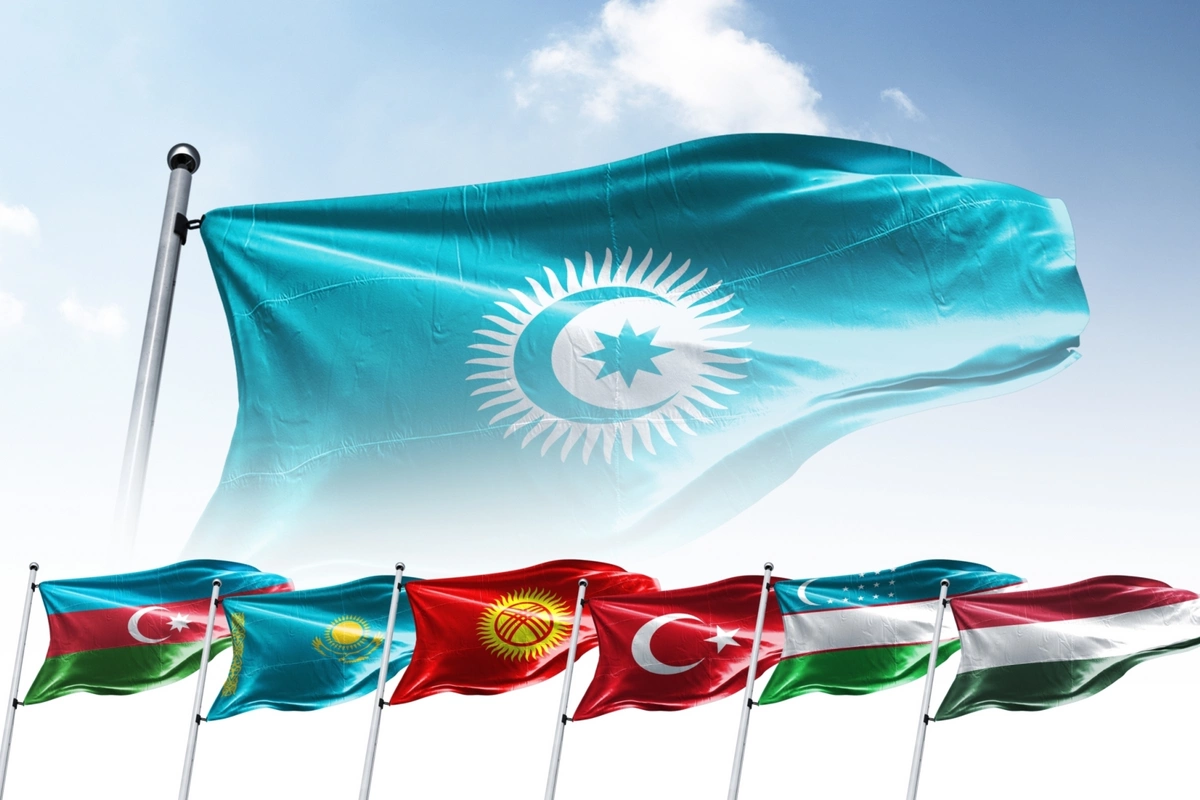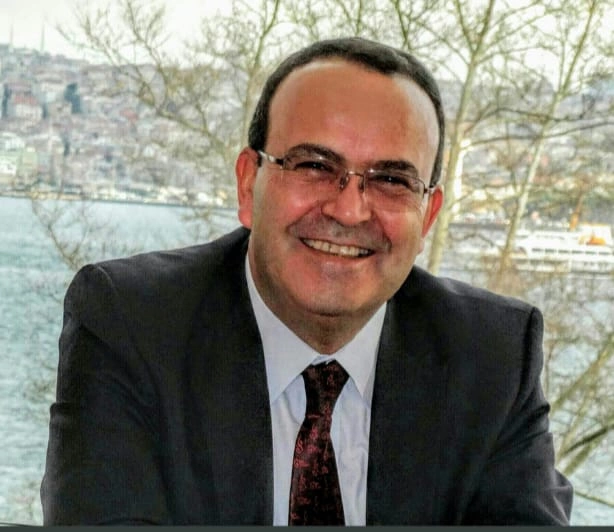
Photo: Shutterstock
The Caspian Post presents an interview with İbrahim Kelesh, a retired Colonel and former Strategy Expert at ASSAM (Justice Defenders Strategic Research Center).

- What strategic steps is Türkiye taking to strengthen the military capabilities of Turkic states?
- Today, we see active efforts by Turkic states to bolster their military power. Following Azerbaijan's successes, Kazakhstan has shown a keen interest in developing unmanned aerial vehicle (UAV) systems. In this regard, Türkiye is offering its advanced technologies.
The Turkish Aerospace Industries (TUSAŞ) manufactures two types of UAVs: "Anka" and "Aksungur." An agreement with Kazakhstan focuses on the production of the "Anka" model, not merely as an export product but through localized manufacturing within Kazakhstan. A factory will be established in the country to produce UAVs domestically. TUSAŞ will provide the necessary technology and expertise, underscoring the uniqueness of this collaboration. Manufacturing "Anka" UAVs in Kazakhstan will strengthen regional security, enhance the capabilities of the Organization of Turkic States, and deepen Türkiye's strategic presence in Central Asia.
- Can other Turkic states meet NATO military standards with Türkiye's support?
- Absolutely. Collaboration with Türkiye enables member states of the Organization of Turkic States to gradually achieve NATO standards. Their military levels and equipment are significantly improving through these initiatives.
For example, in 2025, Türkiye will introduce the "Altay" tank into its arsenal, which could also be offered for export. Our "Kaan" fighter jets are currently undergoing testing, and the "Kızılelma" combat drone demonstrates unique capabilities.
Although the Organization of Turkic States primarily focuses on economic and cultural cooperation, the idea of forming a joint army has been floated, often referred to as the "Army of Turan." If a high level of training, equipment, and combat readiness is achieved, such an army could become a powerful deterrent against any threats.
The cooperation between Türkiye and Azerbaijan exemplifies how experience can be shared. Military schools, universities, and our National Defense University play pivotal roles in training Azerbaijani officers. Transitioning from Soviet-era military doctrine to standards akin to those of Türkiye is already yielding results, enabling Azerbaijan to protect its interests effectively and increase its regional influence.
- What is Türkiye’s strategy concerning Syria?
- Syria remains a priority for Türkiye. The main objectives of our strategy are as follows: 1) preserving Syria's territorial integrity. We advocate for a united and sovereign state within internationally recognized borders; 2) combating terrorist organizations. Türkiye will not allow structures like the PKK and PYD, which threaten our security, to establish themselves along our borders; 3) creating conditions for the voluntary return of Syrian refugees.
Türkiye also seeks to help Syria become a strong state capable of defending itself and rebuilding its economy. Iraq’s history shows that state weakness leads to fragmentation and chaos. Syria must not face a similar fate.
Restoring Syria involves numerous challenges, including securing oil fields, clearing them of PKK and PYD elements, and rebuilding energy infrastructure. Türkiye has made significant contributions, such as training the Syrian National Army, which has become an organized military force.
Efforts are also needed to establish police forces and rebuild the economy. Türkiye is committed to supporting Syria in this process, understanding that its stability is crucial for the entire region.
- Does the new Syrian government’s amnesty include former Assad army personnel? How is this process functioning?
- Approximately ten days ago, weapons surrender process was announced. Former Syrian Army military personnel, as well as police and intelligence officers, were instructed to hand over their weapons to designated centers. So far, around 35,000 to 40,000 individuals have complied.
Upon surrendering their weapons, military IDs and other state documents are confiscated, and temporary identification valid for three months is issued in their place. During this period, background checks are conducted. Those not involved in torture, violence, or other crimes may be integrated into the newly formed Syrian National Army.
Investigations are ongoing, but there are exceptions. For instance, a general who led a notorious prison known for its brutal torture was recently detained. Such individuals will clearly not be welcomed. Reports of atrocities, where prisoners were tortured to death and their bodies discarded, highlight the horrific practices that must be addressed.
Furthermore, atrocities committed by armed groups linked to the Assad regime, such as the "Shabbiha," against civilians also require close attention. Many areas are experiencing shifts in uniforms, flags, and affiliations-for example, PKK and PYD often change their symbols. Today they display their own flags; tomorrow, they may raise those of the U.S. or Russia. Similar tactics are used by ISIS militants, who rebrand themselves under new names. These manipulations demand vigilant oversight.
In recent days, Iran-backed efforts have incited uprisings in Latakia. In one ambush, 17 opposition fighters were killed. Such actions are clearly backed by external support and coordination.
- What is the position of the new Syrian government regarding the Kurds and terrorist organizations like the PKK and PYD?
- During the formation of the transitional government, military operations leader Ahmed al-Sharaan declared: "All peoples of Syria are equal and will live in peace and harmony. No one has superiority over others, and Syrians will live on their land without discrimination."
This position has been upheld so far. For instance, Christmas celebrations by Christian communities occurred without restrictions. Similarly, other religious and cultural events have been observed freely. No discrimination against Alawites or Nusairis has been reported, although their armed activities and ambushes remain pressing issues.
Regarding the Kurdish question, Ahmed al-Sharaan stated: "We clearly distinguish between ordinary Kurdish citizens and terrorists affiliated with the PKK and PYD. The former are part of the Syrian people, while the latter are terrorist organizations."
The government has honored its promises to the Kurdish population. Kurds not involved in terrorist activities face no restrictions. However, Kurds living in areas controlled by the PKK and PYD endure the same suffering as others. Terrorists break into homes, abduct children, and force them into their ranks.
This is not a new tactic. The PKK has long used women and children as shields in its operations. For example, during the Afrin operation, Turkish forces encountered terrorists hiding behind civilians and refrained from attacking to avoid harming innocent lives. As a result, 12 of our soldiers were killed. This underscores the inhumane tactics employed by these terrorist organizations.
- Syrian refugees who have lived in Türkiye for 13 years-do they carry the Turkish way of life with them when returning home? Can the Turkish experience serve as an example for the local population and Syria’s new government?
- Historically, Türkiye itself has followed a similar path. Our mayors and ministers, upon visiting Europe, sought to adopt the level of development they observed there and apply it in Türkiye. Today, Syria lags behind Türkiye by 30 or even 40 years in terms of development. Syrians who have lived in Türkiye for 13 years have inevitably absorbed many aspects of the Turkish way of life and will likely try to implement this experience in their homeland.
We can already see growing gratitude and affection for Türkiye among Syrians. This is especially evident among children: around 758,000 Syrian students attend Turkish schools, and many of them are now fluent in Turkish. These children will become a bridge between Türkiye and Syria in the future. Just as Türkiye once adopted much from Europe, Syria will inevitably draw inspiration from Türkiye.
- What has Russia lost by supporting the Assad regime?
- For Russia, maintaining a military presence in the Mediterranean was a priority. It has two bases in Syria: the airbase in Latakia and the naval base in Tartus. As long as these bases remain intact, a change in Syria’s leadership does not pose a serious threat to Russia.
Russia has not made significant economic investments in Syria, focusing instead on using its military facilities. Unlike Russia, Iran has invested heavily in spreading its ideology and strengthening Shiite communities in the region.
- What goals did Iran pursue by supporting the Assad regime? What has it gained and lost?
- Iran aimed to expand its religious influence and establish dominance in the region by creating a Shiite majority. However, its methods have been destructive. Instead of developing infrastructure and the economy, Iran left behind devastation. Cities like Aleppo, Hama, and Homs are tragic examples of this policy.
The Assad regime, backed by Iranian militias, has turned Syria into an open-air prison. Iran continues to support its allies in the region, instigating unrest among Alawites and Shiites in Latakia.
Moreover, Iran claims that the new Syrian regime must repay the $30 billion it provided to Assad. Yet, one must ask: Were these funds used to develop Syria, or were they spent on financing mercenaries and sustaining the war?
- How do you evaluate Iran’s policy in the region and Donald Trump’s approach to dealing with the country?
- Unfortunately, Iran does not seek peace in the region and shows no goodwill toward its neighbors. However, its actions harm Iran itself more than they harm Türkiye. Türkiye has consistently demonstrated examples of good-neighborly relations, including providing aid to Iran during difficult times.
Regarding Donald Trump, his policy toward Iran focused on intensifying sanctions. The primary objective was to ensure Israel’s security. Instead of investing in improving the lives of its citizens, Iran has concentrated on expanding its influence, which brings no benefits to its people.
It is likely that the U.S. will continue to pressure Iran through economic measures, aiming to increase public discontent and weaken the regime. However, it is unlikely that this will lead to military intervention.
Share on social media